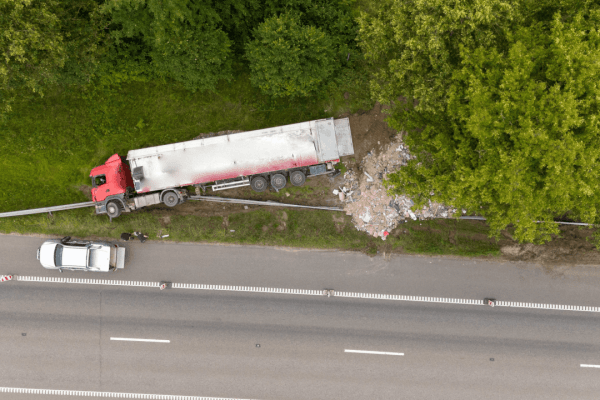
Commercial Vehicle Accident Report: What to Include and Why It Matters
Commercial Vehicle Accident Report – Key Steps After a Crash
A commercial vehicle accident report is a critical document that records the facts and details of a crash involving a business-operated vehicle. Whether you’re the driver, an injured party, or a witness, filing an accurate and timely report is essential. It protects your legal rights, supports insurance claims, and provides documentation for any potential liability disputes.
Why a Commercial Vehicle Accident Report Is So Important
Filing a commercial vehicle accident report is not just a legal formality—it’s the foundation of any investigation. In crashes involving trucks, delivery vans, or fleet vehicles, the report helps clarify what happened and who may be at fault.
It Establishes the Official Record
Law enforcement and insurance companies rely heavily on the report. It often includes:
- Date, time, and location of the crash
- Names and contact info for all involved parties
- Description of vehicles and damages
- Road and weather conditions
- Preliminary determination of fault (in some cases)
It Supports Insurance and Legal Claims
Your insurance provider will ask for a copy of the commercial vehicle accident report to begin processing your claim. If you’re pursuing compensation, your attorney will also use the report to:
- Reconstruct the scene
- Contact witnesses
- Identify potentially liable parties
- Build a strong case for settlement or trial
It Helps Prove Compliance With Regulations
Commercial drivers and fleet operators are held to higher safety standards. A properly filed report can demonstrate whether drivers followed rules on:
- Hours of service
- Cargo securement
- Pre-trip inspections
Failing to file a report—or filing one with errors—can result in delays or denials of claims.
How to Complete a Commercial Vehicle Accident Report
Whether you’re a driver or an injured party, you should know what goes into a proper commercial vehicle accident report. Here’s a checklist of essential elements:
Basic Information
- Date, time, and precise crash location
- Names, addresses, and license details of drivers
- Commercial license and DOT number (for truck drivers)
Vehicle Details
- Make, model, and year of each vehicle
- Company name and vehicle ID number (if applicable)
- Description of visible damage
Crash Description
- Step-by-step account of what occurred
- The direction each vehicle was traveling
- Any contributing road or weather conditions
Witness Information
- Names and contact details of all eyewitnesses
- Statements collected at the scene, if available
Law Enforcement Response
- Officer’s name and badge number
- Police report or case number
- Whether citations were issued
If possible, take photos of the vehicles, road, and injuries to supplement the commercial vehicle accident report.
Filing Your Commercial Vehicle Accident Report Correctly
In many states, the driver must file a report with the DMV or relevant transportation agency within a certain number of days. Additionally:
- Commercial drivers may need to notify their employer immediately
- Some companies require internal incident reports for compliance
- Local law enforcement may also file their own report after responding to the scene
Check your state’s rules to avoid penalties or delays.
Need Help With a Commercial Vehicle Accident Report?
A poorly filed commercial vehicle accident report can hurt your case. If you’re unsure how to proceed, working with an attorney who specializes in truck or commercial accident claims can help ensure everything is completed accurately and on time.
Start your free claim review today and get the support you need to protect your rights.
Frequently Asked Questions (FAQs)
1. Who is responsible for filing a commercial vehicle accident report?
Typically, each driver involved must file a report with the state or their employer. In serious crashes, police usually file an official report as well.
2. What if the police didn’t respond to the crash?
You may still be required to file your own report with your DMV or transportation department. Always check local laws.
3. How soon must a commercial vehicle accident report be filed?
This varies by state, but deadlines range from 5 to 30 days. File as soon as possible to avoid penalties.
4. Can I edit the report later if I find an error?
In some jurisdictions, you can file an amended report. Contact the agency that received the original.
5. Will the report affect who gets blamed for the accident?
Yes. While not the final word, the report may influence how insurers and courts assign fault.
Key Takeaways
- A commercial vehicle accident report documents the key facts of a crash involving business vehicles.
- It supports insurance claims, legal cases, and regulatory compliance.
- Accurate reporting includes driver info, vehicle details, and a full description of the crash.
- File promptly with the correct state or employer agency to avoid delays.
- When in doubt, consult a legal expert to ensure your report is complete and correct.



